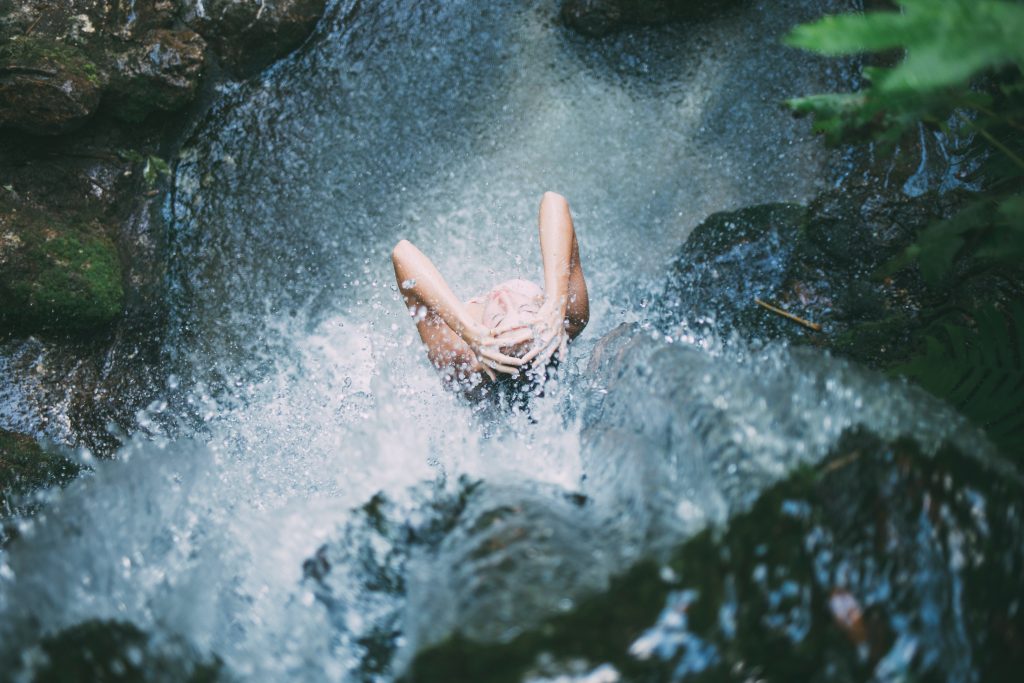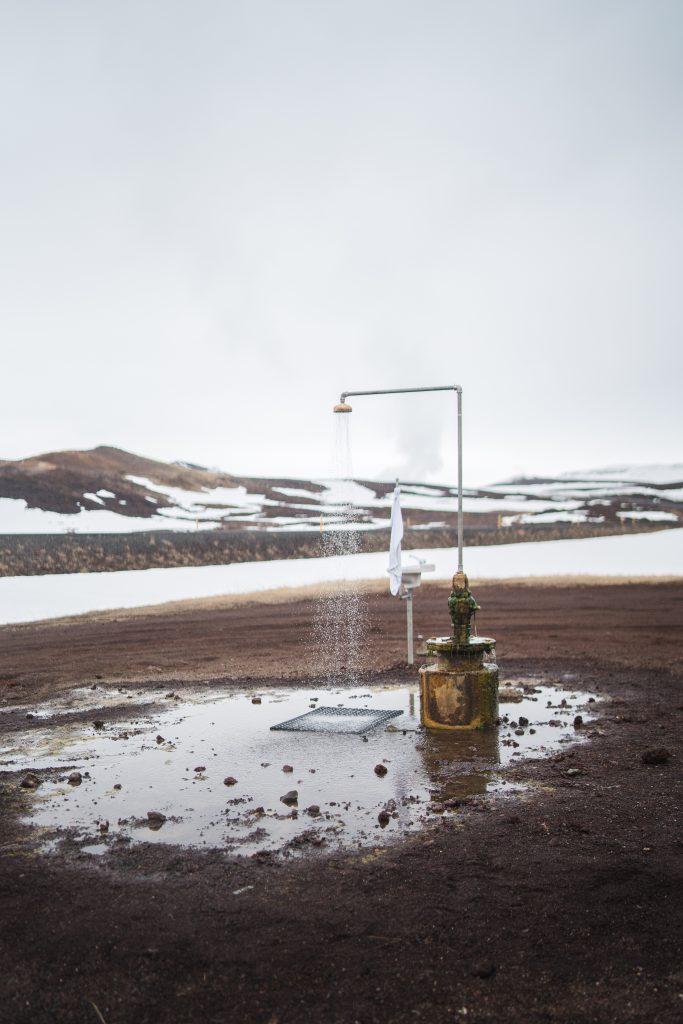How will you stay clean post-collapse? It’s an issue people don’t give much thought about, yet of crucial importance. Disease is one enemy that can take you down without realizing it, and no amount of tools, gear or survival skills can help.

The people who found refuge on the Louisiana Superdome during Katrina know very well what it’s like. Rotten food, lack of showers and functional toilets, no electricity was hard to endure for the thousands who were crammed into that open space. We need to be prepared, so let’s see some common sense hygiene tips…
#1. Water, water and more water.
Having the means to procure water is the cornerstone of any good hygiene plan. Not just for keeping you hydrated, but also for things like:
- showering (or, at the very least, to use a damp cloth to wash your body if you don’t have enough of)
- doing the dishes (though you could stockpile plastic plates and plastic eating utensils to save water)
- washing clothes
- cleaning wounds (yes, you could get hurt!)
- and other things unrelated to hygiene such as watering your garden
Let’s face it, the moment we run out of water, our lives become 10 times more complicated. I’ll even go as far as to say that not having it is way worse than having no electricity.
Ways to ensure you’ve got plenty of water post-collapse:
- get large, 55-gallon barrels and, if you have a back yard, large water tanks
- install a rainwater harvesting system
- have means to filter and purify water in your bug out bag as well as the trunk of your bug out vehicle
- split your water stockpile between your home and your bug out location, because you never know where you’ll end up
- keep extra room in the trunk of your bug out vehicle so you can carry extra water with you to your BOL (if there’s time to load it)
- re-use water from the kitchen sink and shower to water your garden
#2. “If it’s yellow, let it mellow”.
You don’t have to flush the toilet every time. This may not be something you want to do right now but definitely something to keep in mind post-collapse. Follow the “if it’s yellow, let it mellow” rule.
#3. Keep contact with other people to a minimum.
This doesn’t mean you have to stop seeing other people, because you might need information or help. Just remember to avoid touching them, including shaking hands. It may not be polite but manners won’t be as important after the big one hits.

#4. Out of soap or shampoo? Use soapwort!
No, this isn’t some brand of organic soap I’m advertising. Soapwort (lat. saponaria oficinalis) is a perennial plant with beautiful pinkish-violet flowers that can make a great substitute for soap and shampoo. One thing to keep in mind is that it’s “mildly poisonous” if you eat it so only use it externally. There’re plenty of recipes on other sites and the list of ingredients is very short.
#5. Keep dirty clothes contained.
This is especially true if you’re camping somewhere in the woods or if you’re bugging out. All dirty clothes should be stored in plastic bags until you have a chance to wash and dry them.
#6. Show some skin.
The best way to avoid dirty clothes is to avoid wearing them! Now, I’m not sure if the temperature will allow it but if you can, go ahead and do it. One way of getting yourself used to wearing less clothing is to do what I started doing 6 months ago: I stopped wearing pajamas. If you’re older, you should check with your doctor before doing it, but I can tell you it’s working for me.
The benefits? Better immune system, less sweating, your body gets accustomed with lower temperatures (which you might have to face if you’re going to sleep outside) and, best of all, less laundry!

#7. Comb
Combing requires no shampoo and no water, you just have to you remember to add one to your bug out bag. Benefits of combing include removing dandruff, uric acid crystal deposits and other waste. There’s also a side benefit in that you stimulate the blood vessels to bring more blood to your hair, making it stronger and shinier.
#8. No toilet paper? No problem.
There’re plenty of other options that our ancestors used before TP was invented. Things like cloths, newspapers, the leaves of some plants and more.
#9. Remove facial hair.
Though this is an ongoing debate among preppers, you will be less likely to host parasites if you shave your beard and mustache and keep your hair short.
#10. Get a travel sports towel.
If you thought the only way to pack a towel is to sacrifice a good amount of space, I have the solution. There are so-called camp towels that are not only compact but also very absorbent. You can find them on Amazon for around 15 bucks a piece.
#11. Keep your fingernails and toenails neat.
This is very important, as all sorts of bacteria will gather underneath. All you need is nail clippers that you can throw in your bug out bag as part of your hygiene kit.
#12. Take care of your teeth.
Brushing, flossing and using mouthwash should be done DAILY, regardless of whether or not you’re in a disaster situation. Cavities are one of the last things you want to deal with when there’s chaos all around you.
#12. Keep your hands clean.
If you’re doing a lot of office work, you probably don’t feel the need to wash that often. But when you’re working the field and the garden all they, when you’re feeding the animals, fixing your home and doing your own cooking, you’re going to have to wash A LOT more often. You’re also going to need soap (or the means to produce it) and/or hand sanitizer. It’s always a good idea to keep some sanitizer in your BOB and BOV.
Final Word
The thing I hope for the most is that you act on the advice I’ve given you. The tips are easy to put into practice and, some of them should be done on a daily basis, anyway. Post-collapse, you need to be a little more rigorous, so why not start today?

Spot on with this write-up, I absolutely believe this site needs much more attention. I’ll probably be back again to read through more, thanks for the information!
Such an important topic…your concise list is on point, and your advice is largely applicable not just in survival scenarios but in every day life. Thanks.
Re: #5…Before putting dirty and/or sweaty and/or damp clothes into a plastic bag and sealing it up, allow them to dry completely or as much as possible, then shake them out vigorously before putting them into the bag. And then, don’t forget they’re in that bag or you’ll be in for a very unpleasant surprise, especially if they weren’t completely dry when you put them in there. (Think back to high school when you forgot and left your sweaty gym clothes in your locker over the weekend instead of bringing them home to be washed.)
Re: #8 AND #12…Strongly suggest keeping a good supply of nitrile (or vinyl or latex) gloves on hand (pun intended) for use while using the toilet and wiping up afterwards. Keep a full box (or more) by your toilet/s, and include several pairs in each of the “TP Kits” you keep in your EDC/GHB/BOB/INCH/BOV/BOL. As an example, our local Costco stocks sturdy, high quality Kirkland-brand “Nitrile Exam Gloves” (size “L” should fit most adolescents/adults well enough for this task, though “M” and “S” are also available if needed for smaller hands); find or ask for them in the pharmacy.